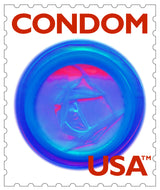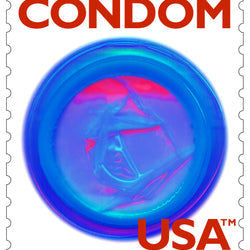Ten Questions Answered on CBD Oil and Diabetes
As marijuana is becoming increasingly legal and socially acceptable, its related hemp byproducts are getting a lot of attention for potential health benefits. CBD oil is first on that list. But should you use it if you have diabetes?
To get answers, we queried both a medical expert and a diabetes patient experienced with using CBD oil.
What is CBD Oil and How Do You Use It?
Cannabidiol, better known as CBD oil, is extracted from the cannabis plant, and diluted with a “carrier oil” like coconut or hemp seed oil.
CBD is one of the many chemicals known as "cannabinoids" found in the cannabis plant, that appear to bind to receptors in the brain to produce certain effects. But this one does not contain the best-known cannabinoid, tetrahydrocannabinol (THC), which causes the "high" people feel after using marijuana.
CBD oil does not produce a high, but it is credited with alleviating symptoms of a number of ailments, including chronic pain, anxiety and depression.
It should not be smoked. Rather, it is edible and can be added to food. It can also be used topically on the skin. But it's most often taken in pure oil form by simply placing the desired quantity of drops under your tongue using the dropper, and holding it there for a minimum of 60 seconds -- to allow for absorption via the blood vessels. Once 60 seconds has passed, you swallow the CBD oil.
How much to take depends on the condition you’re hoping to treat, but generally runs between 2.5 - 20mg per day, according to most product recommendations.
CBD Oil and Diabetes
Diabetes is an inflammatory condition and CBD does have anti-inflammatory properties. In research, CBD has shown promise in reducing insulin resistance and moderating blood sugars for people with type 2 not taking insulin.
When we queried leaders in diabetes education to learn more about CBD oil and diabetes, we were immediately referred to Emily Kyle, a Registered Dietitian Nutritionist (RDN) and Holistic Cannabis Practitioner based in upstate New York. While not a diabetes expert per se, Kyle has become well-known among healthcare providers as an expert on the overall health effects of cannabis.

We asked her five key questions on CBD oil as it relates to diabetes:
DM) CBD oil is becoming increasingly popular as a sleep aid / pain reliever / treatment for anxiety and depression. Are there any concerns about using it when you have diabetes?
EK) Just like any other over-the-counter supplement or medication, there are obvious concerns when using CBD oil if you have type 1, type 2, or gestational diabetes. Concerns can range from the type and quality of the product being used to various potential side effects that may occur as a result.
The biggest concern lies in the possibility of a cannabinoid-drug interaction for those who are taking prescribed medication and/or insulin to manage their diabetes. Researchers believe that “it is possible that the endocannabinoid system buffers insulin sensitivity rather than strictly inhibiting it.”
There’s a lack of clinical evidence to provide guidelines one way or another of the safety and efficacy of the cannabinoid CBD itself. Additionally, CBD is just one of hundreds of cannabinoids, and it is unclear whether other cannabinoids such as CBN or THC, which could be found within a CBD oil product, may have a direct impact on those with diabetes as well.
Does it have any direct effects on blood sugar?
Unfortunately, clinical studies in humans on the direct effect of CBD oil on blood sugar is lacking, likely due to the illegal status of marijuana which is currently seen as a
What we do know is that the body’s endocannabinoid system plays an integral part in the regulation of energy metabolism, which is important to know for those who are living with diabetes. Emerging data suggests that “the endocannabinoid system sets the sensitivity of the insulin response in adipocytes." This means that the endocannabinoid system plays an important role in how the body responds to insulin, increasing or decreasing insulin sensitivity. This is critically important for those who are taking insulin because it could mean that their blood sugars could rise or fall unexpectedly, making tight control more difficult to achieve.
Anecdotally, I have had clients who exhibit completely different response reactions to CBD oil use. One client told me it dramatically decreased their blood sugar within a matter of minutes, which is potentially very dangerous. Other clients notice no effect on blood sugar at all. This is attributed to the uniqueness of each person’s endocannabinoid system and their personal endocannabinoid tone.
What's the best CBD oil to choose if you have diabetes?
The best CBD oil to choose if you have diabetes is one that has been produced by a reputable company that has also been verified by a third-party lab testing company to ensure that what is stated on the label is accurate and true. At this time CBD is an unregulated market and several studies have shown that several CBD oil products are misleading to consumers by either not containing what was promised, or containing additional ingredients that were not disclosed.
Additionally, I always recommend individuals stay away from and added ingredients, artificial flavorings, artificial dyes, added sugars or other ingredients such as melatonin.
What about CBD gummies that also contain sugar? Are they still an option for PWDs (people with diabetes), or do you know of any brands with no carb effect?
Regardless of whether you have diabetes or not, if we are truly using CBD for health promoting purposes and/or preventative wellness, it is counter-intuitive to combine that with refined sugar, artificial dyes, and artificial flavorings.
Instead, I encourage people to make their own CBD gummies at home with whole-food ingredients such as fruit and vegetable purees and quality CBD oil extract or concentrate. For a quick and easy tutorial on how to make your own CBD Gummies at home using real fruit and vegetable purees with no added sugar, check out my guide to making your own homemade CBD gummies.
What should PWDs consider when deciding whether or not to try CBD oil?
If you are unsure about how to begin to use CBD oil with a condition like diabetes and want to do so safely, consider reaching out to a Holistic Cannabis Practitioner or other trained healthcare professional for cannabis counseling. (Yes, that’s a thing!)
Using CBD Oil with Type 1 Diabetes
We also spoke with Rob Howe, a Texas-based former pro basketball player-turned-diabetes-advocate who was diagnosed with type 1 diabetes as a teenager in 2006. He runs a nonprofit called "Diabetics Doing Things." In recent years, he’s become a proponent for use of CBD oil.
We also asked him five key questions on the topic:
DM) How do you personally use CBD oil? Do you ingest it, or put it on your skin?
RH) I actually do both, but my primary form is by oral capsules. I usually take one 30mg pill every morning or I mix 30mg of tincture (liquid) into my coffee in the morning. I've used it as a topical cream as well, but mostly on sore joints. I find that I get more of a whole body effect by taking CBD orally.
You’ve mentioned that CBD oil "evens you out”… What does that mean? What are the actual effects on your body?
Good question! The best example I can give is that I'm a very deep sleeper, and tend to have a tough time getting going in the mornings. CBD keeps me more balanced, meaning I can wake up easier, get warmed up for sports/fitness easier, recover from workouts quicker, get ready for bed easier, etc. In terms of measurable effects, I would say my soreness is reduced after workouts, I have more time in deep sleep on my sleep tracker, and I'm in a better mood as a result of both.
Have you noticed any impact on your diabetes specifically?
As far as I can tell, I haven't seen any direct impact on my blood sugars as a result of taking CBD as it is available over the counter or online. That's just my experience. However, the ability to get more exercise without pain and get better sleep have indirect impact on my diabetes, so I think that tips the scales in the favor of ‘CBD does impact my diabetes positively.’
Does your endocrinologist or CDE (certified diabetes educator) know of, or have any thoughts on, your use of CBD oil?
My endo sort of rolls her eyes at me because of my pursuit to be a hyper-optimized human, so to her CBD is just another of the latest and greatest health trends that I'm into. She of course asked me to be mindful when I started taking it, and was happy to hear of my positive outcomes regarding holistic health and wellness even though I told her my diabetes had not been directly impacted.
In your opinion, what’s the best CBD oil for a person with diabetes?
I use GreenHelix CBD oil, specifically the GreenHelix Recovery and GreenHelix Super Pure products. They help with joint pain relief and ease some of my social anxiety and depression symptoms. The company also has a CBD oil-based sleep product and a skincare cream that I haven't tried yet, but look interesting.
This article has been medically reviewed by , PhD, MSN, RN, IBCLC, AHN-BC, CHT, on 8/23/2019.






Leave a comment